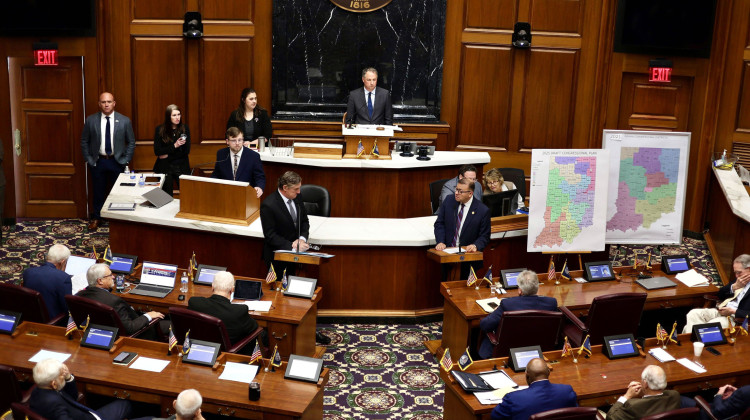The pandemic has presented challenges for those who work towards ending homelessness in Indianapolis. Every winter the City works with the Coalition for Homelessness Intervention and Prevention, CHIP, to implement a winter contingency plan.
WFYI’s Jill Sheridan talked to CHIP Executive Director Chelsea Haring-Cozzi who says this year a five million dollar infusion of federal CARES Act funding is helping.
HARING- COZZI: We all knew we couldn't do it the same way we've done it in years past, because our shelter partners are trying very hard to keep shelter numbers lower. Some of our largest shelters like Wheeler Mission, know that they can't have the the volume of people that they typically see in the winter in the same ways this year.
So the city has been able to bring some CARES Act funding to the table to support hotel facilities to be able to provide non congregate sheltering options for men, women and families. And that's significant in this year,
SHERIDAN: Recent good news, surrounding grants out to youth programs that are doing some of this work, what might those programs look like? And how important is it really to have those services in place?
HARING- COZZI: It's so important, Jill, I mean, we have been talking about youth homelessness and young adult homelessness for years here in Indianapolis, and really bringing people together to lay a strong foundation. To one, understand youth and young adult homelessness because it's different, they have unique needs different barriers than the adult population. To bring the partners to the table who really know and are working with youth to help design and implement strategies and solutions, bringing young people who have lived experience and expertise to the table.
And now we finally have resources dedicated to actually implement these strategies and to have dedicated resources for this population. So the funding that is coming through the Youth Homelessness Demonstration program, over the next two years, is just vital. So what this funding is bringing to the table is support for system navigation through a project called Youth Link. And that's really helping young people kind of know where to go and have one point of contact to say, 'I need help. I'm experiencing homelessness or at imminent risk of homelessness'.
And then to actually have dedicated housing and services to serve young people is vital. Several programs are bringing Rapid Rehousing online for young people specifically for 18 to 24 year olds.
And then Trinity Haven is introducing a brand new intervention to our community through a host home project that matches young people with families as they work to get connected to employment or education or the things that will really lead to self sufficiency,
SHERIDAN: Moving into these colder winter months and moving into such a desperate time, during the pandemic. What are your major concerns for people who may be at risk of experiencing homelessness or who are currently.
HARING-COZZI: I mean, I think the major concerns are really getting you know, the message out to people who are living unhoused right now that there are options and to come inside, connect with a provider so that there is a pathway to not just emergency temporary shelter but a pathway to permanent housing. The winter always brings unique challenges, and for many in this community is a matter of life and death. And that we continue to push for low barrier emergency shelter options and permanent housing.
Housing is the answer. That is the place that people are going to be safest and kept healthy, and really the most stable.
SHERIDAN: Thank you so much for taking time today. I really appreciate it.
 DONATE
DONATE








 Support WFYI. We can't do it without you.
Support WFYI. We can't do it without you.